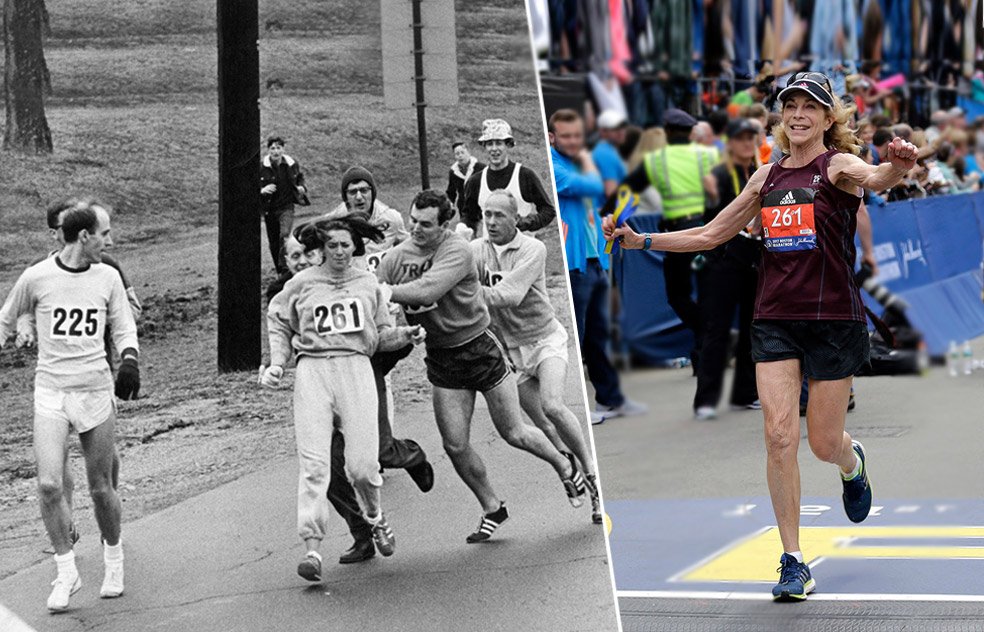
She Was The First Woman To Complete The Boston Marathon; 50 Years Later, She Ran Again
18 April 2017 9:51 AM GMT
Monday saw a 70 year old , Kathrine Switzer, running the Boston Marathon for the ninth time, with a million fans cheering her on along the route and photographers and TV cameras capturing her celebration at the finish line timing 4:44:31. In 1967, Switzer was the first woman with a bib issued by the Boston Athletic Association to cross the Boston Marathon finish line, and the first time she ran, Jock Semple, the co-director of the famous 26-mile race, suddenly appeared behind her and tried to shove her out of the competition.
The Boston Marathon traces its origin to an ancient Greek battle and has a rich history of its own. But the story of the race’s distaff division didn’t begin until 1966, when it was still a fringe footrace of amateurs running only for an olive wreath and a bowl of beef stew.
Switzer was inspired by Bobbi Gibb, who had hid in the bushes to join a field of 415 men, becoming the first woman to run Boston in 1966 and began the “unofficial era of women’s participation.”
A year later, Switzer told her coach at Syracuse, Arnie Briggs, about Gibb and said she also wanted to run Boston. Briggs challenged her to complete the distance on a training run and he would help her sign up. And she did.
While going through the race’s entry rules Briggs insisted that Switzer, “a card-carrying member of the Amateur Athletic Union,” should officially register, as they found nothing about gender. Switzer, signed up using her first initial, K just because she didnt fancy her first name for her journalistic profession. They thought they had followed all the rules. But Jock Semple, who thought we were trying to pull a fast one, tried to knock Switzer off the course during the run. Switzer’s boyfriend shouldered him out of the way, and Switzer ran on.
Semple, defended that he was trying to protect his race from international rules which sanctioned only men’s marathons. After the pictures of the scuffle were splashed across newspaper front pages, she found herself an unintended spokeswomen for her gender. “I wasn’t there to prove anything,” she said. “It wasn’t until Jock Semple attacked me did everything changed.”
Switzer later helped create the Avon International Running Circuit of 400 women’s races that showed the IOC there were enough women to fill out an Olympic field and the women’s marathon was added to the Summer Games in 1984.
“What happened to me was a radicalizing experience. And it was one that made me bound and determined to change things for women,” she said. “Running had given me everything, and I wanted other women to feel that as well.
In 2015, Switzer created 261 Fearless, a non-profit that uses running to empower women around the world . The logo depicts her original bib, with one corner torn off from the struggle.
 All section
All section













